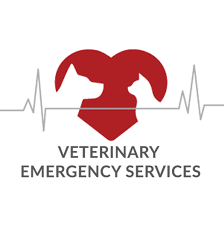As a pet owner, one of the most important responsibilities is ensuring your furry companion’s health and well-being, which includes being prepared for any medical emergencies that may arise. Pets, like humans, can experience accidents, sudden illnesses, or health crises that require urgent care. In these situations, having access to a reliable emergency veterinary service is essential for your pet’s survival and recovery. But knowing how to access this care, when to go, and what to expect can make all the difference in your pet’s outcome.
In this article, we’ll guide you through how to access reliable emergency veterinary services and why this is crucial for your pet’s critical care.
1. Know the Signs of an Emergency
The first step in accessing emergency veterinary services is recognizing when your pet is experiencing a medical crisis. While some issues can wait until regular office hours, others require immediate attention. Common signs that indicate an emergency include:
- Severe trauma or injury: Broken bones, deep wounds, or bleeding
- Difficulty breathing: Labored breathing, coughing, or wheezing
- Severe vomiting or diarrhea: Especially if accompanied by lethargy or dehydration
- Seizures or fainting: Loss of consciousness or unusual behavior
- Ingestion of toxins or foreign objects: If your pet has eaten something harmful or potentially dangerous
- Sudden changes in behavior: Lethargy, confusion, or signs of pain (whining, refusal to move)
- Excessive drooling or difficulty swallowing
- Severe abdominal pain or bloating
- Heatstroke or hypothermia: In extreme temperatures, pets can suffer from body temperature imbalances that require urgent medical intervention
Recognizing these signs and acting quickly will help ensure that your pet receives timely treatment. In case you are unsure, it’s always better to err on the side of caution and contact an emergency veterinary clinic for advice.
2. Locate the Nearest Emergency Veterinary Service
Knowing where to go in the event of an emergency can save valuable time. It’s important to have a list of emergency veterinary services in your area and keep it accessible, whether you store it on your phone or in your pet’s emergency kit.
Here are a few ways to locate reliable emergency veterinary services near you:
- Search online: A quick online search for “emergency veterinary service near me” or “24/7 vet clinics” should help you find the closest clinics in your area. Many veterinary hospitals now have websites with clear information about their services, contact details, and location.
- Ask your regular vet: Your primary care veterinarian can recommend an emergency service provider or may have an after-hours contact in case of emergencies. Many clinics have partnerships with or refer clients to local emergency veterinary hospitals.
- Emergency pet helplines: Some areas have pet care hotlines or services where you can consult with professionals about whether your pet needs emergency care. They can help direct you to the best facility.
- Word of mouth: Ask fellow pet owners, friends, or family for recommendations. Local pet communities and forums can be great resources for reliable emergency services in your area.
Ensure that the emergency clinic you choose is equipped for the level of care your pet may need. Check their reviews, ask about their certifications, and ensure they are accredited by professional veterinary associations, such as the American Animal Hospital Association (AAHA).
3. Understand the Services Available at Emergency Veterinary Clinics
Emergency veterinary clinics are designed to handle urgent and critical care situations. However, it’s important to know what services you can expect when you arrive:
- 24/7 availability: Emergency veterinary clinics are open around the clock, including weekends, holidays, and overnight hours, to accommodate pets in urgent need of care.
- Advanced diagnostic equipment: Emergency vets often have access to advanced diagnostic tools such as X-rays, ultrasounds, blood tests, and lab facilities to quickly assess the condition of your pet.
- Specialized care: Emergency veterinary services are staffed with trained professionals, including emergency veterinarians and certified technicians, who are skilled in stabilizing critically ill or injured animals.
- Critical care units and hospitalization: Some emergency clinics offer intensive care units (ICUs) for pets requiring constant monitoring, IV fluids, or post-operative care. This is particularly useful for pets recovering from surgery or needing extended care.
- Surgical facilities: In case of trauma or conditions like internal bleeding, fractures, or foreign body ingestion, emergency clinics often have the facilities and specialists required to perform life-saving surgeries.
It’s essential to verify that the facility you’re visiting has the capability to provide the care your pet requires. If your pet needs specialized care that the emergency service cannot provide, they may refer you to a specialty hospital or a board-certified veterinary specialist.
4. Prepare Your Pet for the Emergency Visit
When preparing to visit an emergency veterinary service, there are a few steps you can take to make the process smoother for both you and your pet:
- Gather essential information: Have your pet’s medical records, vaccination history, and any relevant details about their current condition ready. This includes the timing and nature of the emergency, any known allergies, and any medications your pet may be taking.
- Secure your pet: If your pet is injured or in pain, they may be frightened or in distress. To prevent further injury or stress, ensure your pet is safely contained in a carrier, or use a leash for dogs. If possible, have a second person drive so you can focus on comforting your pet during the trip.
- Stay calm: Pets can sense their owner’s anxiety, so remaining calm and composed will help your pet feel more secure. Follow the directions provided by the emergency clinic and prepare to provide any requested information upon arrival.
5. Know What to Expect During Your Visit
When you arrive at the emergency veterinary clinic, your pet will be triaged based on the severity of their condition. The staff will prioritize critical cases, so be prepared for your pet to undergo immediate evaluation. Here’s what you can expect:
- Initial assessment: The veterinary team will ask you questions about your pet’s symptoms, the timeline of the issue, and any background health information. They may perform an initial physical examination.
- Diagnostics: If needed, your pet will undergo diagnostic tests such as blood work, X-rays, or ultrasound to determine the cause of their symptoms.
- Treatment: After diagnosis, the veterinary team will begin treatment to stabilize your pet, which could include IV fluids, pain management, medications, or surgery if necessary.
- Communication: The veterinary staff will keep you informed throughout the process, explaining your pet’s condition, the proposed treatment plan, and any necessary follow-up care.
6. Costs and Payment Considerations
Emergency veterinary services typically cost more than routine care, given the specialized nature of the service and the urgency involved. Make sure to ask for a cost estimate for treatment if possible, and inquire about payment options. Many clinics accept credit cards and may offer payment plans for expensive procedures. Some pet insurance plans also cover emergency care, so check your coverage and bring any relevant information with you.
Conclusion
Having access to a reliable emergency veterinary service is one of the most important steps you can take to ensure your pet’s health and safety. Knowing how to recognize an emergency, locating an appropriate facility, understanding the services available, and preparing your pet for the visit can all make a significant difference in how your pet is treated during a crisis.
By being prepared and knowing where to turn in an emergency, you can provide your furry companion with the best possible care when it matters most. Always remember, when in doubt, don’t hesitate to contact an emergency vet clinic for advice—your pet’s health and well-being depend on it.







